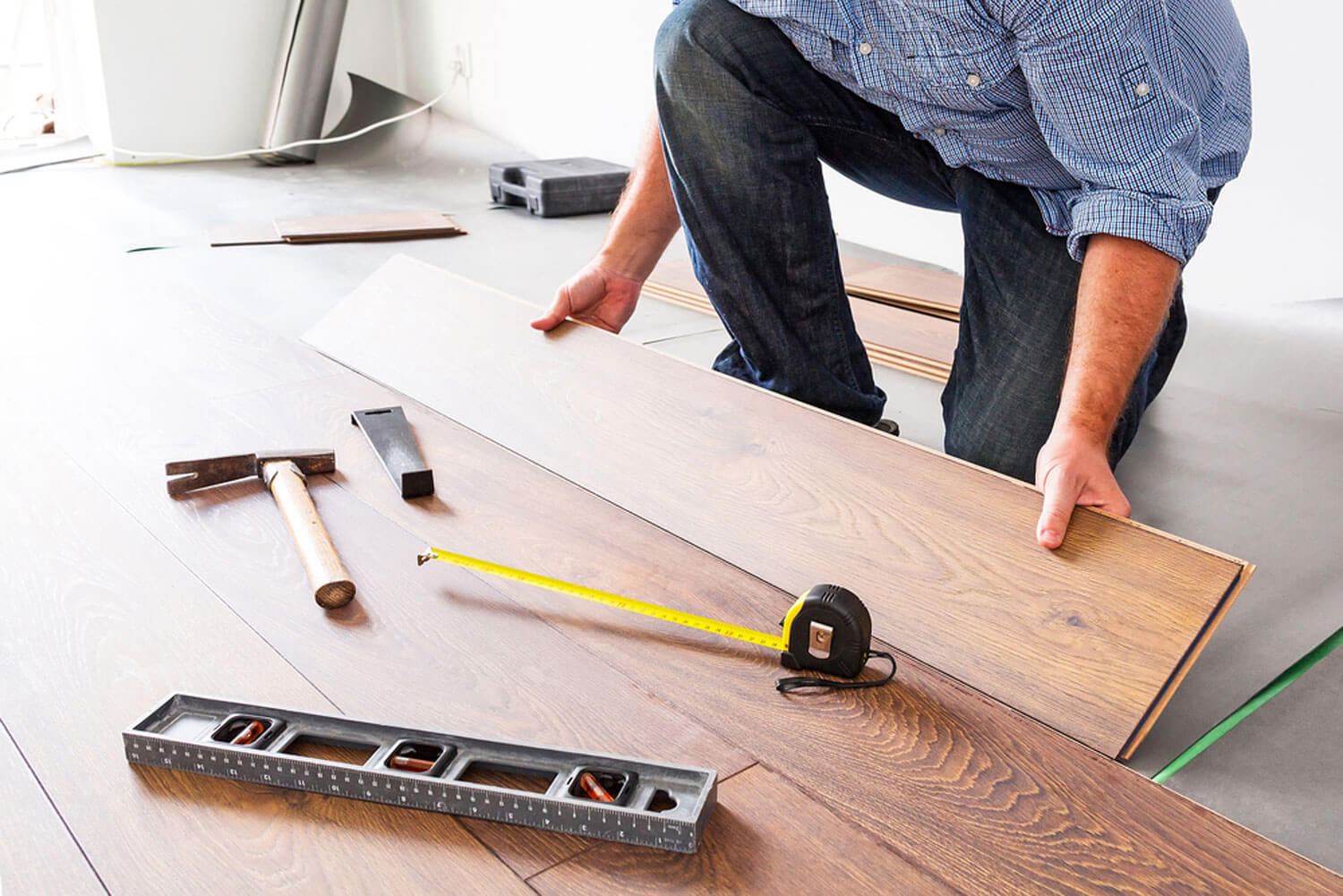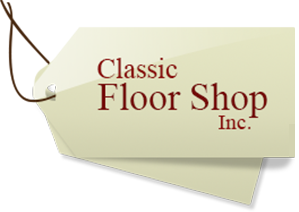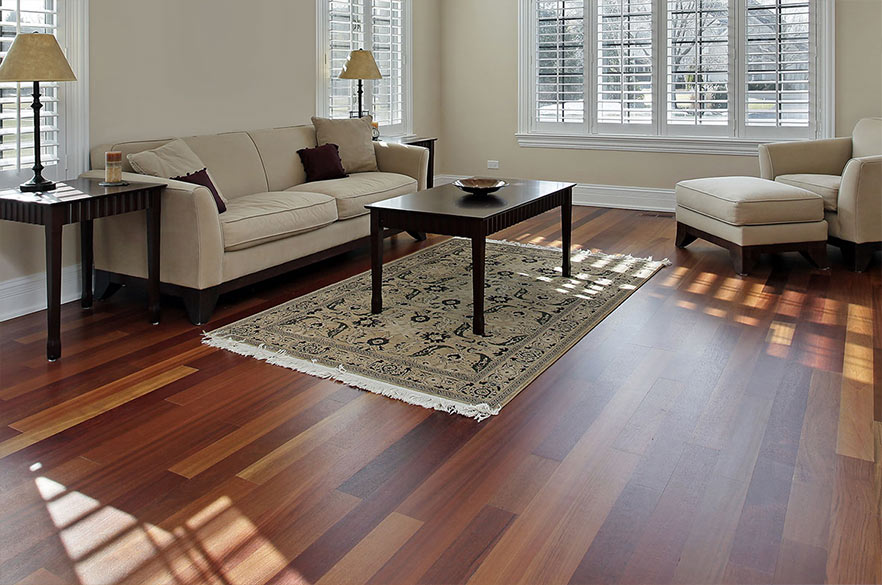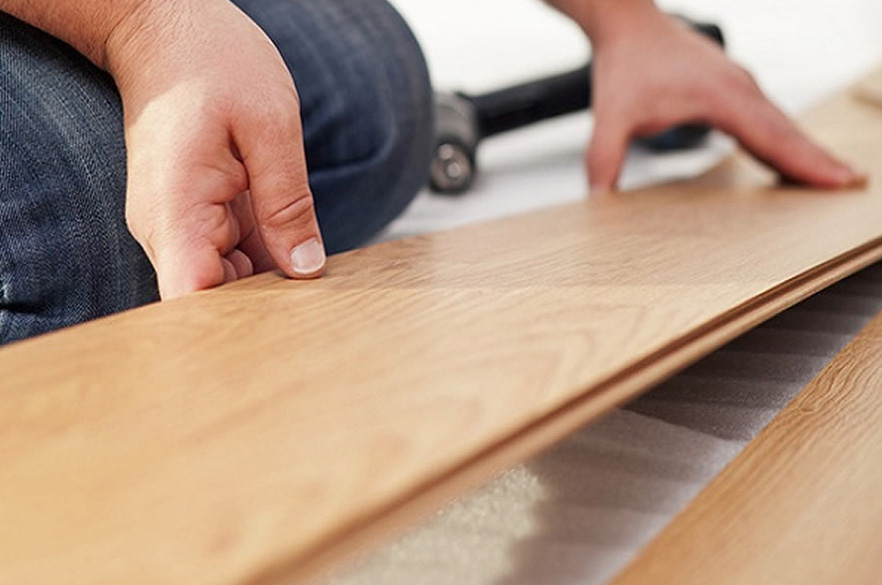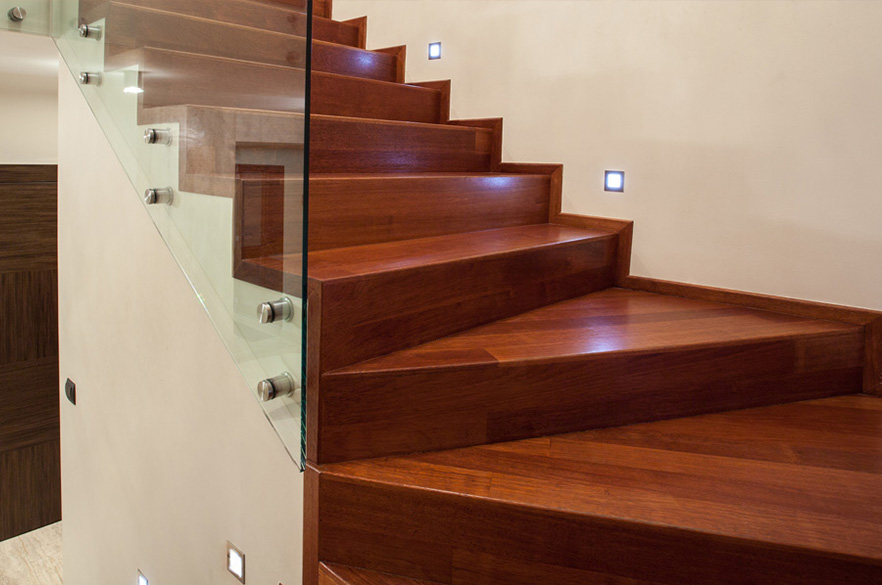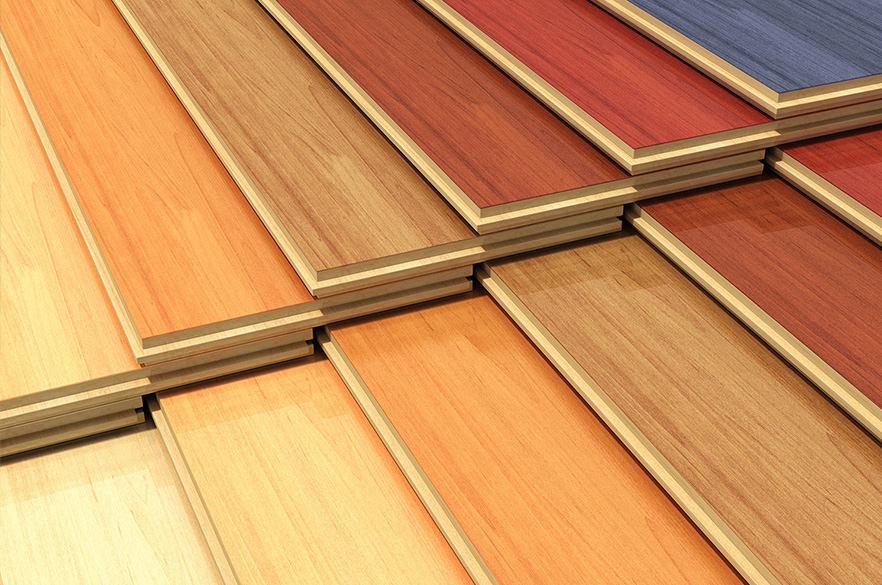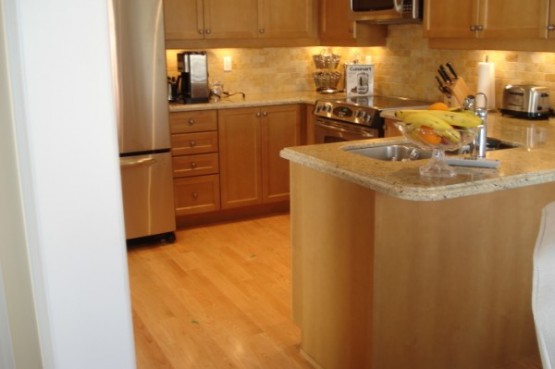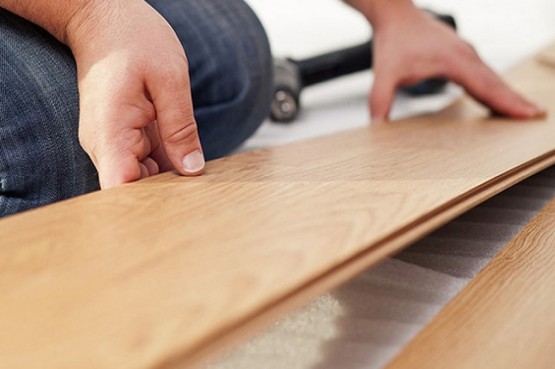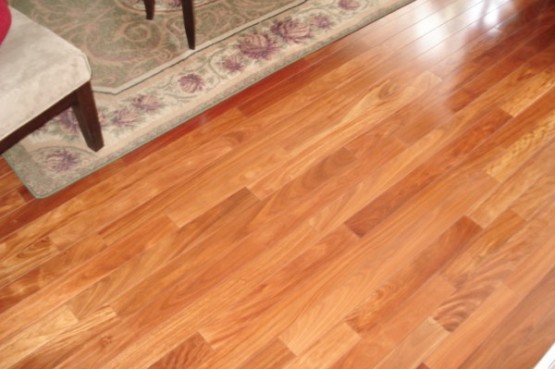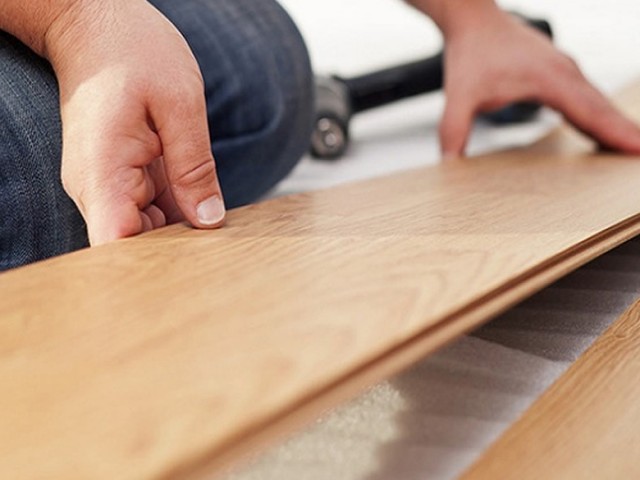Our FAQs
Frequently Asked Questions
Is it okay to put wood flooring in a kitchen, or front hallway?
The answer is yes. The finishes on the vast majority of today’s hardwood flooring products can resist traffic, and, as a result, wood flooring is appearing in kitchens and front hallways quite regularly. As well, with such a variety of different hardwood flooring products you’re sure to find the right look and colour too.
I have heard that having wood floors provides a healthier living environment in ones home, is this true?
In almost all cases this is true. As you might imagine, dust and dirt do not get trapped on wood floors like you might discover with broadloom. Simply by vacuuming and sweeping regularly hardwood floors can be kept clean and sanitary. This is especially true for people with allergies, as many studies have concluded that wood floors offer a better home environment.
I have squeaks in my floor – will putting new hardwood eliminate them?
While you are adding a great deal more solidity and stability to your floor by adding hardwood, it alone is not enough to address the squeaky that has occurred over time. The reason is that the sound most people are referring to is usually not a result of the old hardwood floor, but, rather, is a result of a weakened sub-floor. Therefore it is always recommended to re-fasten your sub-floor prior to installing your new hardwood as an effective way of minimizing squeaking.
What is the most effective way of preventing scratches on my hardwood floor?
It really starts with good overall cleanliness. The more often you clean your floor, the less opportunity for heavier dirt to collect and get trapped in nooks and corners. Eventually these granules could get dragged around and scratch up ones floor. Equally as effective is to place the appropriate felts and nylon sliders underneath chairs, tables and sofas – really, under anything that will be making contact with the floor.
My floor is showing signs of gapping and cupping, why is this happening?
In almost all instances this is a result of improper humidity and moisture levels in the home. Wood functions best at humidity levels of between 40%-55%. Gapping is usually a result of the home environment being too dry. The best solution is to attach a humidifier to your furnace, or strategically place portable humidifiers throughout your home or condo. Hardwood flooring reacts poorly when there is too much humidity in the air, usually during the summer months, and especially in homes situated close to water. An air conditioner is an effective tool to bring down the humidity levels as is a de-humidifier.
What is an engineered floor?
Engineered floors are comprised of a solid hardwood veneer usually laminated over multiple layers of plywood (depending on the company the core might be softwood, hardwood or HDF). The advantage of engineered is that it can be glued down (or glued together in a floating format)or clicked together directly on or over concrete, thus giving the condo community and people interested in putting hardwood in their basements the ability to go with hardwood. Furthermore, engineered, thanks to its design, is structurally more stable, therefore it moves less than solid hardwood. Seeing as engineered can be nailed down as well, some people are using it instead of solid hardwood, especially because it is usually warranted over radiant heating. Engineered comes in almost all the same colours and species as solid hardwood does, and is environmentally advantageous because it uses less wood than solids.
What about Leather and Cork – what are they like as flooring materials?
More designers, architects and savvy consumers are embracing leather and cork for their unique look, durability, versatility, and environmental appeal. Torlys Leather and Cork floors help you create a healthier home as they contain no harmful VOC emissions, no added formaldehyde an exceed California Indoor Air Quality standards, among the most stringent in the world.
What is VOC?
VOC, or Volatile Organic Compound, is the necessary substance used to manufacture adhesives and sealants, making them fluid and workable. Once an adhesive or sealant is applied, it cures or hardens by the evaporation of the VOC, releasing substances into the air, which is why you smell an odor as the curing happens. Commonly used VOCs include mineral spirits, toluene and xylene. Gasoline and alcohol are also VOCs.
Many states have implemented laws that restrict the use of certain VOCs believed to contribute to low-level smog and ozone depletion. Adhesives and sealants labeled VOC compliant have been reformulated to comply with these laws. Therefore these products are made with exempt VOCs, and they are made with a lower total volume of VOCs. VOC-compliant products have less of an impact upon the environment and exactly meet the requirements of these laws. VOC restrictions are on the books in nine states and pending in 10 others.
